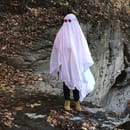My world has always seemed so empty. It’s always been lonely, and I know people, but I know that people leave. I know that my world is a passing speck, compared to all the other worlds out there. There’s a different world for every person, and mine doesn’t really seem like it should matter.
If my world is one world, that means that there are more than seven and a half billion worlds on Earth, and it’s growing every second. It means that there are more than 328 million worlds in the United States. More than 39 and a half million here in New York, alone. It makes my world seem small in comparison, with Earth as just one huge universe for all these worlds.
Most of those worlds, mine will never touch. I won’t have an impact on some little kid being born right this second in China. I’m not going to have an impact on that elderly man who’s dying in Florida right now. Never will I make a difference to that couple in England who are raising their toddler. It’s not pessimism, it’s fact.
Sometimes, I wonder how worlds overlap. I wonder how I can walk past 100 people every day who will never notice me in their worlds, and that I’ll never notice in mine, but how I can join in the galaxy of someone who lives in England with some words sent through a wire. I wonder how the worlds around me stop from colliding, and how my world can become so inextricably entwined with the world of another man despite my best efforts.
When I was a child, I asked my mother why we didn’t move to New York City, as was the direction her dream job was taking her at the time, when we had the chance. “There are too many people,” she said, as one reason. Too much noise, too much collision. Too many worlds. I never liked that answer. What was wrong with having new people to meet every day? Why did they want to fall into the same old orbit patterns with the same worlds they always saw, without discovering a new one? As I grew older, all I wanted was more worlds around me, more to make mine feel like it wasn’t so inconsequential, so stuck in its ways.
The other reason she gave me that always stuck with me was that “We like being able to see the stars.” That always confused me. Though we didn’t live in New York City, we lived in Downtown Syracuse, the peak of the city. She kept me sheltered from larger parts of the world, trapped in this small system of the same old worlds, day after day. I hadn’t known that city lights would block the stars even more than they had in Syracuse.
Then, one day, when I was maybe seven or eight, my vision started to deteriorate. Despite what my mom said, I found myself mostly unable to see the stars they always talked about loving. One of the very things that made them love the positioning of their worlds were vanishing from me, leaving me even more hopeless at the prospect of mine being stuck in their orbit. Even once I got better glasses, a visor to see their galaxy, I had trouble seeing them.
Eventually, an asteroid called adulthood struck my world and knocked it out of the orbit it was in. My family’s world had disintegrated years before, leaving nothing but a trace of dust that settled into the atmosphere of those in their orbit who hadn’t been thrown away like myself. This asteroid brought me further from the people I had always grown up around, and I landed just outside the system of Skaneateles Lake. My world settled into a steady spin on rolling down hills, with more worlds than I had ever had the chance to explore around me and who wanted to see mine too.
I found the worlds of my best friends, our orbits syncing together for the times we got to spend, though slowly, our gravity weakened, and we drifted apart. We lived, so, far away most of the year. I found new worlds all the time, more in my galaxy every day. I made connections to alien worlds via my computer, desperately trying to make contact with a world that would find my impact valuable.
One day, my world met that of another person who was different, like me. Our gravity was strong, and we started spending time together. Our atmospheres would come into contact as we would take walks around the very space our worlds occupied. And one day, our walk found us standing on a hill, staring out at the city below us. The nighttime in our worlds had begun to settle, and the one giant star that was in all of our galaxies had set for the night.
What I saw was the glitter of thousands upon thousands of stars, not above me, but below me. The city lights gave me stars well within my reach, stars that twinkled red and gold and white and green and blue. Every star was a different color, one for every second, every breath. One twinkled for every heartbeat, every passing moment that we were alive. Each one bleeding into my galaxy, giving me my stars, the ones that made me want to stay here.
Finally, I understood what they meant by wanting to see the stars.
I know that my world can’t stay here forever. Every orbit changes its path sometimes, whether that’s in the long span of time that’s been experienced by what we call Outer Space, or in the short span of human life. Whether each world lasts for a breath or for a hundred years, its orbit moves and eventually disintegrates.
But for now, while it is here, I will let the lights of my own personal stars twinkle for me.



